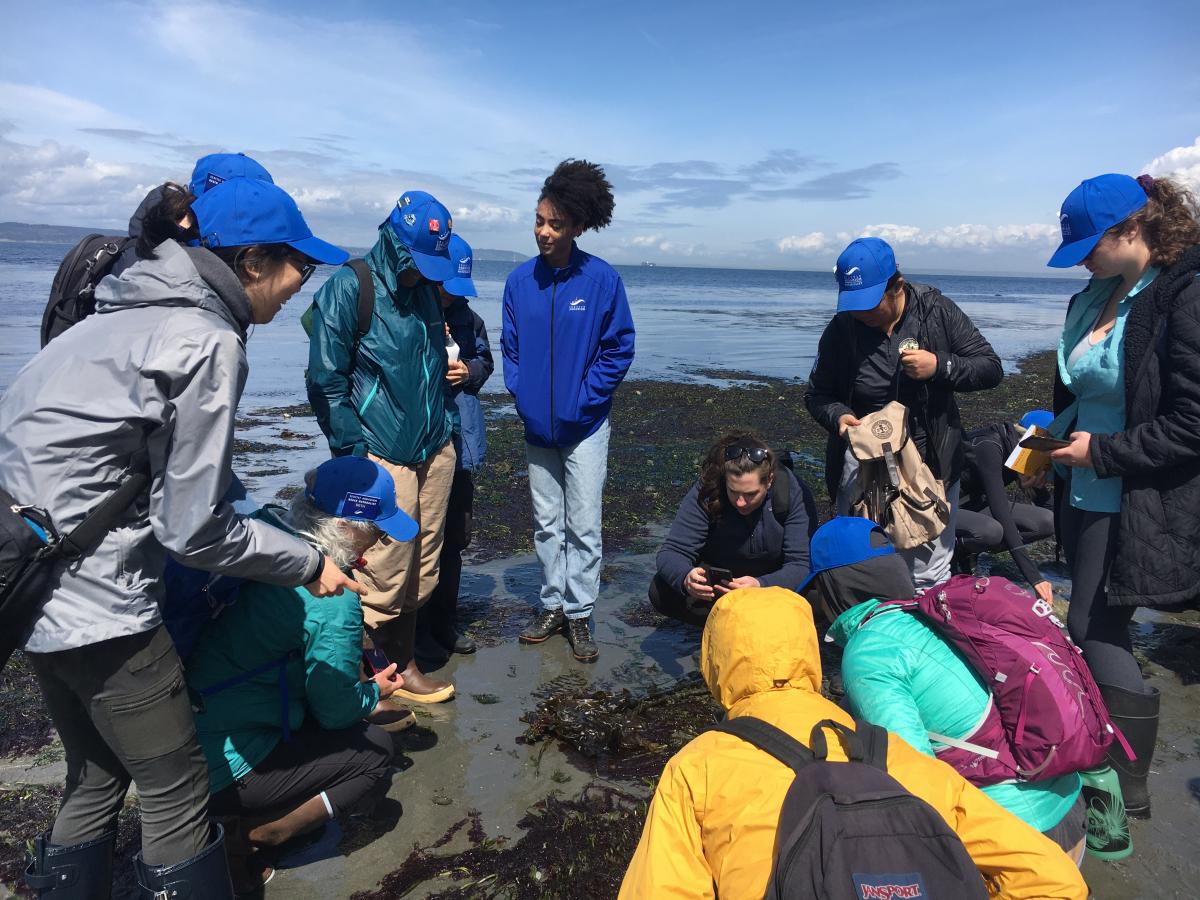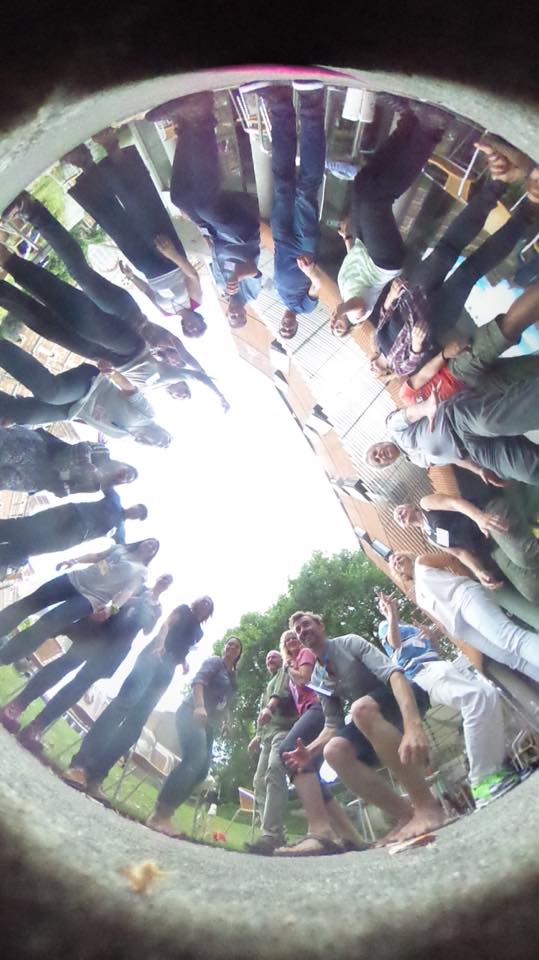Climate Conversations Collaborative

Welcome to our blog series, CEE-Change, Together. Each month, NAAEE will post narratives from the CEE-Change Fellows as they implement their community action projects and work to strengthen environmental education and civic engagement capabilities, all supporting the mission of cleaner air, land, and water. Join us on their journey! The Civics and Environmental Education (CEE) Change Fellowship is NAAEE’s newest initiative to support leadership and innovation in civics and environmental education in North America. This ee360 program is a partnership between NAAEE, US EPA, and the Cedar Tree Foundation.
I’m a docent at my local zoo where we do a lot to engage and educate the public about conservation and the natural world. In that vein, I started thinking—and reading—about the fact that informal learning environments (zoos, aquariums, nature centers, and the like) are prime venues for engaging people about climate change. Yet, it was painfully obvious to me that these conversations weren’t happening. Why?
I was just starting my second master's degree with Miami University’s Project Dragonfly—a program grounded in social and ecological change and inquiry. My interest and curiosity kept pulling me toward the social science around climate change. So much of what thought leaders like Katharine Hayhoe, chief scientist for the Nature Conservancy, were saying centered on the importance of—and barriers to—talking about climate change.
It was true that when I thought about having those conversations myself, my tummy got a little queasy. I just had to do something to get into this space and see how volunteers like me could start talking about climate change. So, I checked out the training from the Frameworks Institute, the National Network for Ocean and Climate Change Interpretation (NNOCCI). I attended a seminar in the Smithsonian’s ‘Women in Environmental Leadership’ series and was blown away by Caroline Lewis, nationally recognized founder of the Cleo Institute. She talked about their speaker's bureau, and I had to check it out—certainly what they were using to train everyday citizens and students would have something to offer volunteers. So I got certified as one of their climate speakers. Armed with ideas, approaches, and metaphors to use, I teamed up with another zoo docent to try this out.

For the most part, all went well. For example, NNOCCI’s tested metaphor of a ‘heat-trapping blanket’ really helped people understand how greenhouse gases are warming the earth’s climate. Until…this one lady. Even in a ‘green’ city like Seattle, there I was, face to face with a ‘denier!’
At that moment, faced with someone telling me, point-blank, that she didn’t “believe in that theory,” I
didn’t feel particularly well-equipped to navigate that conversation. And much of what I could find from my research about existing programs was aimed at either staff or the general public. What I needed was something that would be practical for mobilizing volunteers as a resource for this important work. Thus was born the ‘Climate Conversations’ initiative. This project would find ways to help volunteers broach and navigate conversations about climate change and really any uncomfortable topic. Developed by volunteers, for volunteers, Climate Conversations is a grassroots initiative. We started with a regional focus, helping to bring together volunteers in Puget Sound area informal learning environments, such as zoos, museums, and aquariums.
Participants in these sessions gain:
- Understandable, accessible facts: Break through the overwhelming array of science facts and misinformation to gain the basic principles and a set of trusted resources about the basics of climate science and the impacts climate change is having now. Compiled on a one-page handout, these are easy to refer back to as you continue your journey in having—and mastering—climate conversations.
- Collaboration and confidence: Learn techniques for building your collaborative conversation skills based on shared values. Foster greater confidence as you practice and master these types of conversations.
- Relevant solutions: Big global problems like climate change require aligned, coordinated solutions at the neighborhood, state, and regional scales. We’re often used to talking about solutions at an individual level, and you learn how to reframe these concepts into civic-focused, hopeful constructs.

First, I worked with a team of other zoo docents to design and deliver a three-part series of virtual volunteer development opportunities for fellow zoo volunteers. In these sessions, we leveraged concepts from NNOCCI and the CLEO to build brief, interactive training exercises. I reached out to colleagues to find additional collaborators from the Applied Improvisation Network, an organization focused on using tools and techniques from the world of theater in real-world settings to improve training, collaboration, and innovation. These were the tools that would help make the scary, overwhelming concept of Climate Change more accessible and even fun.
So far, in addition to the 75+ zoo volunteers, my partners and I have delivered variations of these sessions to 90 beach naturalists from the Seattle Aquarium, in workshops as part of the Applied Improvisation Network and Conservation Marketing Conferences in 2021, and a session for alumni of the Making Moves Behavior Change for Conservation course.
Climate Conversations is an inquiry-based initiative, brought to life by the voluntary efforts of a group of us who don’t feel ready or entirely confident in what we’re doing, but who know that we need to do something to address this most pressing issue of our time. And for that reason, we are learning and building our part of the movement together.
Join us at Climate Conversations, because we can’t fix what we don’t talk about. When we can relax, have some fun learning, and practice together, we’re more likely to talk about this tricky topic.

